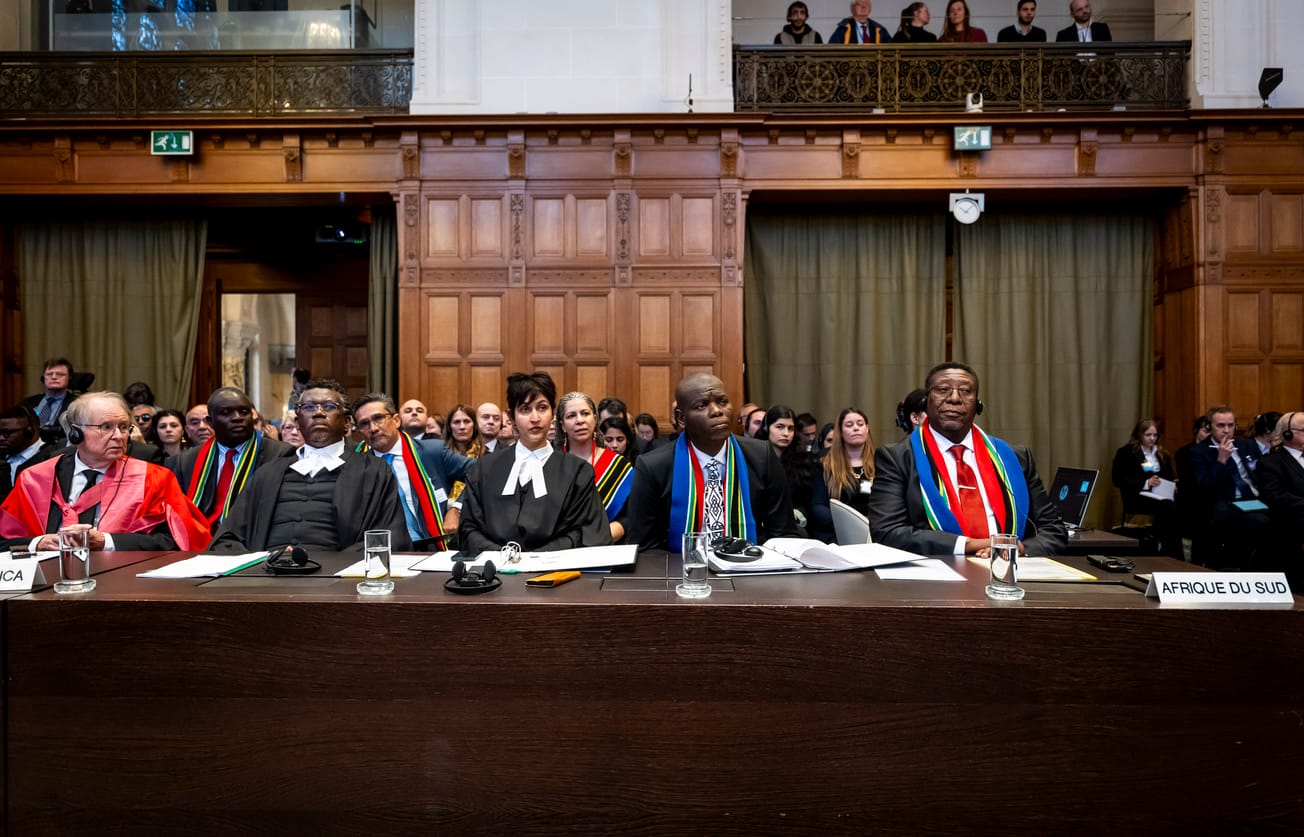On Feb. 12, the government of the Republic of South Africa filed an “Urgent Request for Additional Measures Under Article 75(1) of the Rules of Court of the International Court of Justice,” asking for emergency measures to be taken to stop the imminent genocide in Rafah, Gaza. It is a tightly-argued, two-page brief, with a third page of documentary footnotes, which begins by summarizing the Jan. 26, 2024 ICJ Court Order against Israel, and then states that “there has since been a significant development in the situation in Gaza requiring the Court’s urgent attention.”
The filing then quotes Israeli Prime Minister Benjamin Netanyahu, the Israel Defense Forces and others announcing their imminent assault on Rafah—including Netanyahu’s repeated “we’re going to do it”—which has already been subjected to “an intense, unprecedented Israeli military assault, with an ongoing threat of yet further intensification of the assault—including by way of an Israeli ground invasion.” They note that Rafah is normally the home to 280,000 Palestinians, but is now housing “more than half of Gaza’s population, estimated at approximately 1.4 million people, approximately half of them children.… As the International Committee of the Red Cross has made clear, there is `no option’ for the evacuation of the Palestinian population in Rafah as `there is nowhere else for the people to go.’”
The South Africa application then quotes various UN and other officials describing the horror of a possible Rafah assault: “The United Nations Secretary-General has stated unequivocally that a large-scale military assault against Rafah `would exponentially increase what is already a humanitarian nightmare with untold regional consequences’.… The United Nations Special Rapporteur on the situation of human rights in the Palestinian territories occupied since 1967 has starkly warned that `the risk of a massacre of unparalleled scale looms on the horizon’…. The Commissioner-General of UNRWA, referring to the `growing panic in Rafah’ … [said] that he is `almost becoming wordless,’ not `know[ing] how to describe this’.… The Norwegian Refugee Council and Save the Children, have also raised the alarm that `[n]o war can be allowed in a gigantic refugee camp.’ Warning of a `bloodbath,’ they have emphasized that `expanded hostilities in Rafah could collapse the humanitarian response,’ and that `what happens next’ would `be beyond our worst nightmares.’”
After that, South Africa calls for new measures to be adopted immediately: “Having regard to the situation of extreme emergency, the Republic of South Africa respectfully requests that the Court exceptionally consider exercising its power under Article 75(1) of the Rules of Court. Article 75(1) provides that: `The Court may at any time decide to examine proprio motu whether the circumstances of the case require the indication of provisional measures which ought to be taken or complied with by any or all of the parties.’ The Court retains full discretion to exercise this power … pursuant to the precedent case of LaGrand (Germany v. United States of America).… In LaGrand, the Court exercised its Article 75(1) power in a situation of extreme urgency affecting one individual. Here there is a situation of extreme urgency affecting an estimated 1.4 million vulnerable Palestinians in Rafah, at least half of them children. They are at serious risk of irreparable harm to their right to be protected from acts of genocide contrary to Articles II and II of the Genocide Convention, by a State which has already been found by this Court to be acting in plausible breach of its obligations under that Convention.
“South Africa thus respectfully calls upon the Court to consider as a matter of the greatest urgency whether the developing circumstances in Rafah require that it exercise its power under Article 75(1) of the Rules of Court to prevent further imminent breach of the rights of Palestinians in Gaza. South Africa also reserves its own rights to take further action in respect of the situation.”
A full page of footnotes then follows. The full text of the South African filing is available from the ICJ.






